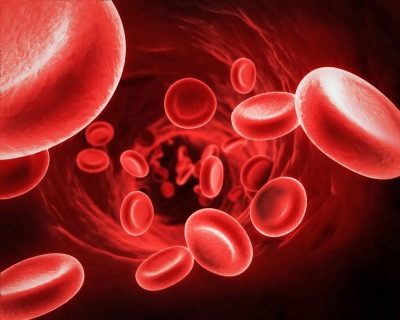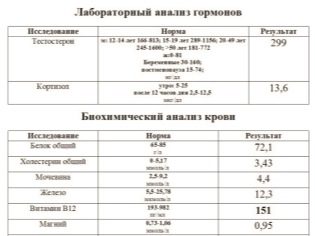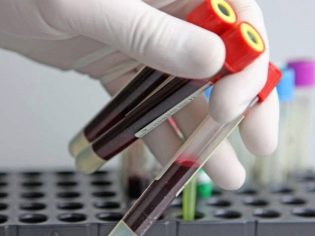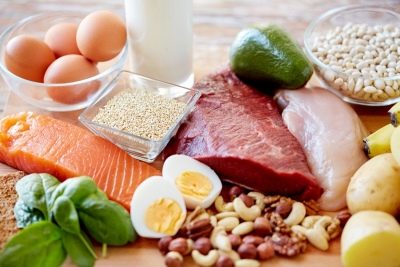Norms of protein in the blood during pregnancy and causes of deviations
Protein structures in the bloodstream are very important. They are necessary for the full intrauterine development of the baby and the preservation of the good health of the future mother. A lack of protein in the blood can be the cause leading to the formation of various pathologies.
What it is?
Protein components consist of many different amino acids. Some of them are formed inside the body, while others come from the outside with food. Blood protein performs many different functions.
It is necessary for the active work of the immune system and the resistance of the body to various infections. Also, protein molecules are necessary for the transportation of various nutrients to all internal organs of both the expectant mother and her baby.
Protein is a necessary substance for the active growth and development of the baby. While carrying a child, the need for it in the body of the expectant mother increases significantly. Especially greatly increased the need for protein during multiple pregnancies. For future moms who are carrying double or triplets, it is very important to follow the dynamics of this clinical indicator in all trimesters.
During pregnancy, not only active growth of the fetus occurs, but also its placental membranes. Optimal protein balance is especially important before breastfeeding.
If the concentration of protein particles in a woman’s blood is somewhat reduced, then during a baby’s breastfeeding a protein deficiency may occur.
Protein plays a very important function in performing hematopoietic functions. During pregnancy, the cardiovascular and other systems begin to form in the fetus. Low protein in the blood can lead to the formation of various abnormalities and pathologies in the work of the developing internal organs.
Maintaining a normal concentration of protein in the body is necessary to maintain osmotic pressure. A decrease in this indicator may lead to a woman will have a strong puffiness. In some situations, a decrease in blood protein contributes to the appearance of gestosis in a woman.
Protein metabolism in the body is uninsulated. It also actively affects carbohydrate and fat metabolism. Violations of protein metabolism, as a rule, contribute to the violation of other vital processes in the body.
If this condition develops over time, This can lead to the appearance of various pathologies.
Why lowered protein levels?
Pregnancy is the time of physiological reduction of protein. At this time, all expectant mothers fall concentration of protein particles in the blood. Some hormones lead to the development of this condition, which begin to stand out in large numbers in the female body after conception of a baby.
The increasing concentration of progesterone in the blood contributes to an increase in circulating blood volume. Such a reaction is quite physiological and is a kind of preparation for the further intrauterine development of the baby. Severe accumulation of fluid in the female body against the background of pregnancy leads to a relative lack of protein.
In the first weeks after conceiving a baby, many women develop severe nausea or even vomiting.This leads to the fact that the appetite of the future mom is reduced. In this state, it consumes much less protein products. If this situation is quite long, it contributes to the formation of various pathologies.
Eating habits can also lead to a decrease in blood protein concentration. This situation often develops in future mothers who practice vegetarian food. It is important to note that any reduction in the intake of all essential amino acids necessary for life already contributes to protein imbalance.
In addition to physiological lowering of protein in the blood, such decline can also be pathological. In this case, a variety of pathologies of internal organs lead to the development of this pathology. Quite often, the primary cause of this condition is anemia or persistent immunodeficiency.
Diseases of the liver and kidneys, especially those accompanied by the development of deficiencies in the functioning of these organs, can lead to a decrease in the concentration of protein in the blood. Doctors call this pathological condition hypoproteinemia.
Various toxic and medicinal poisonings can also lead to the development of this pathology. In this case, the protein concentration in the body decreases rapidly and significantly. In order to normalize the violations in such a situation, it is necessary to urgently admit the woman to the hospital for intensive treatment.
Chronic diseases of the gastrointestinal tract, occurring with impaired absorption of various nutrients, also contribute to the development of this pathological condition. Persistent dysbacteriosis and irritable bowel syndrome lead to a violation of the entry into the female body of amino acids.
Pathologies of the pancreas are also quite common causes leading to the development of disorders in protein metabolism. This body produces quite a lot of biologically active substances necessary for protein metabolism. Chronic pathologies of the pancreas over time lead to the fact that the protein particles in the blood becomes small.
Norms
The content of protein molecules in the blood is a very important and constant indicator. For its evaluation, reference (normal) values are used. If after analyzing the deviations are not detected, then this pregnancy refers to a healthy one. Various violations manifested in this laboratory test, require mandatory treatment of the attending physician.
Indicators of normal values of total protein for pregnant women are somewhat different. For all healthy people, the concentration of protein in the blood is 65-85 g / liter.
During the carrying of the baby, this criterion changes physiologically. So, for future mothers, indicators of total protein in the blood should be in the range of 55-85 g / liter.
In order to determine the concentration of total protein in the blood, doctors prescribe biochemical analysis to expectant mothers. You can take it in the clinic or in a private laboratory. If a woman passes this analysis in the antenatal clinic, she will need a referral. It is issued by an obstetrician-gynecologist or a therapist, observing the future mom during the whole period of her pregnancy.
Doctors recommend taking this analysis on an empty stomach. The laboratory should be visited in the morning. 2-3 days before the analysis, you can not eat a large amount of protein products. Just do not limit them. To maintain the protein balance, it is quite enough to use 1-2 servings of protein-containing products per day before the test.
In the biochemical analysis, which is carried out to determine the concentration of protein in the blood, in addition to its total fraction, there are others.
So, for example, with the development of pregnancy in the future mom's blood, globulins increase. These protective substances help to protect a woman and her baby from various infectious pathologies.
At the same time, albumin fractions of proteins begin to decline.Very well, it manifests itself to the second trimester of pregnancy. At the final stage of carrying a baby, the albumin fractions decrease significantly.
In some situations, there may be disorders associated with an increase in blood protein. High concentrations of protein components can also lead to the development of various pathologies of internal organs.
Hypoproteinemia can be very dangerous. A pronounced decrease in protein in the blood can lead to the fact that the baby in the womb ceases to fully develop. In the mother, this condition contributes to the deterioration of her health. A pregnant woman begins to develop edema, and fatigue is noticeably increased.
How to increase?
In order to raise the level of protein in the blood, doctors prescribe a number of different recommendations to expectant mothers. It is compiled only after carrying out additional diagnostic methods, allowing to identify the cause that led to the development of this condition.
Increase protein in the blood helps special therapeutic diet. It includes food products that contain a lot of various amino acids. Currently, there are a variety of tables in which such products are entered.
To compensate for the violations that occurred, future moms should remember that they should consume protein foods daily.
In the event that, against the background of adherence to a special diet, a woman does not normalize the level of protein in the blood, doctors resort to prescription special protein drugs. They are administered, as a rule, parenterally. For this, the future mom is hospitalized in the hospital.
Intensive therapy is also used in cases where the decrease in the concentration of protein in the blood is pronounced. Such situations usually occur as a result of severe burns or subsequently severe pathologies of the liver and other internal organs.
Protein Boost Foods
To compensate for the resulting violations, doctors recommend expectant mothers to eat several times a day. To do this, eat food at least 4-5 times a day. Servings should be moderate. Any overeating, even protein food, can lead to the fact that the future mommy will have a problem of excess weight.
It is important to note that should use a variety of sources of protein. They contain the necessary for the body and a variety of amino acids. For optimal growth and development of the baby requires the receipt of various such substances.
This feature and leads to the fact that the future mom should eat both animal and vegetable food.
Record for protein content are seeds and nuts. In addition to protein molecules, they contain quite a lot of healthy fat and vitamins, which are so necessary for the full intrauterine development of the fetus.
There is practically no protein in fruits and fruits. However, they should also be used by the future mom. The vitamins and useful trace elements contained in them help to normalize protein metabolism and are catalysts for many reactions in the body.
Many amino acids are also found in animal food. Beef, poultry and game, rabbit are excellent sources of protein during pregnancy. They contain quite a lot of amino acids and a minimum of fat. Their regular use contributes to the correction of violations.
Fermented milk products and milk are also important components of a therapeutic diet. They contain a variety of amino acids, as well as beneficial microorganisms that normalize the work of the gastrointestinal tract. Eat dairy products should be daily.
Cottage cheese and cheese are also excellent sources of calcium, which is necessary for maintaining women's health during pregnancy, as well as for the full development of the musculoskeletal system of the baby.
Proteins are found in seafood and fish.These products are truly unique, as they contain a lot of phosphorus and iodine. These trace elements are necessary for the full intrauterine development of the baby.
Regular consumption of fish and seafood not only eliminates hypoproteinemia in the body, but also helps to fill the vitamin imbalance.
For information on what protein is the norm during pregnancy, see the following video.



































